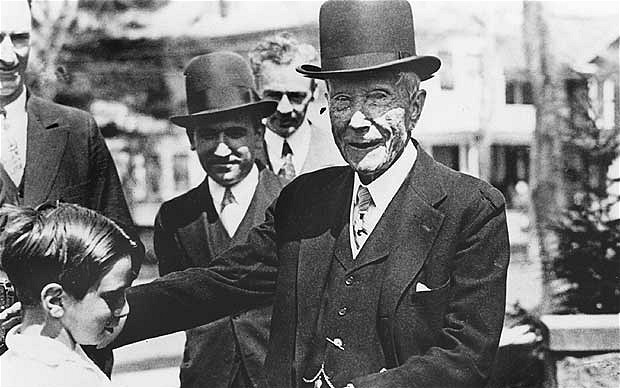“Obviously, You Could Not Download Music”
February 29, 2016 in Excerpts, Politics, Science/Tech | Permalink
Americans won’t likely always settle for bread and Kardashians.
You could make a strong case that Donald Trump, the fluffer for a white supremacist porn film, has been significantly aided by our odd descent into un-reality, our constant desire to binge on entertainment, but Bernie Sanders’ surprising rise, though likely an abridged one, reminds that the very real Occupy unrest which informed the 2012 election season has dissipated no more than income inequality itself has. While these uneasy starts may never culminate in any elected official being able to reconfigure our system from the inside, the pressure from without may ultimately grow strong enough to make an impact.
Yet still there are rationalizations. The Libertarian economist Russ Roberts believes the Gig Economy isn’t populated mostly by struggling citizens but instead by entrepreneurs temporarily driving Ubers and Lyfts only until venture capital allows them to permanently park their mustaches. Roberts’ partner in the Cafe Hayek site, Don Boudreaux, offers up a doozy as well with his post “Most Ordinary Americans in 2016 Are Richer Than Was John D. Rockefeller in 1916.” The tacit implication is that since we now have antibiotics, Android phones and Amazon Prime, the fall of the middle class isn’t really so troubling.
We’ve enjoyed technological and material progress in eras when we’ve enjoyed a fair tax code and in ones in which we haven’t. It’s silly to suggest we need cling to what’s become a lopsided society because we like penicillin. It’s also tone-deaf analysis when many in our country struggle in this new Gilded Age to pay for the basics of shelter, food, health and education.
Below is piece from Boudreaux’s writing and the opening of Barry Ritholtz’s riposte in Bloomberg View.
________________________________
- From Boudreaux, a passage about life in 1916:
While you might have air-conditioning in your New York home, many of the friends’ homes that you visit – as well as restaurants and business offices that you frequent – were not air-conditioned. In the winter, many were also poorly heated by today’s standards.
To travel to Europe took you several days. To get to foreign lands beyond Europe took you even longer.
Might you want to deliver a package or letter overnight from New York City to someone in Los Angeles? Sorry. Impossible.
You could neither listen to radio (the first commercial radio broadcast occurred in 1920) nor watch television. You could, however, afford the state-of-the-art phonograph of the era. (It wasn’t stereo, though. And – I feel certain – even today’s vinylphiles would prefer listening to music played off of a modern compact disc to listening to music played off of a 1916 phonograph record.) Obviously, you could not download music.
There really wasn’t very much in the way of movies for you to watch, even though you could afford to build your own home movie theater.
Your telephone was attached to a wall. You could not use it to Skype.•
________________________________
- From Ritholtz:
Today’s discussion involves a visit to the here-we-go-again files. The website Cafe Hayek, in a post titled “Most Ordinary Americans in 2016 Are Richer Than Was John D. Rockefeller in 1916,” asks a seemingly simple question: What is the minimum amount of money that you would demand in exchange for going back to live as John D. Rockefeller did in 1916?
The obvious point here is that we are doing better than the richest man of a century ago. Yet there’s a subtext (which becomes pretty clear by looking at the comments on the post): That all of this talk about wealth and income inequality — an important theme in this year’s presidential election — can and should be ignored. After all, as some have noted, even many of the poorest Americans own a smartphone today, whereas a century ago not even the wealthiest person on Earth had one.
I have addressed the logical failings of this kind of comparative exercise before (see this and this). For one thing, if you are going to make a temporal argument, you must recognize that time is two-sided. Yes, it is true, the average American in so many ways is better off than the rich were 100 years ago. However, by that same logic, everyone today — rich, poor and middle-class — is much worse off than the poor of 100 years from now. It’s easy to consider what the folks will say about long-dead us in 2116: “Imagine — they were mortal, gave birth, bred animals to be killed and eaten, drove their own cars. How primitive!”
Comparing folks of different economic strata across the ages ignores a simple fact: Wealth is relative to your peers, both in time and geography.•
Tags: Barry Ritholtz, Don Boudreaux
Subscribe to my free Substack newsletter, "Books I Read This Month." It's published on the final day of each month. Some new titles, some older, some rare.
Categories
About
Afflictor.com is the website of Darren D’Addario. Except where otherwise noted, all writing is his copyrighted material. ©2009-18.

